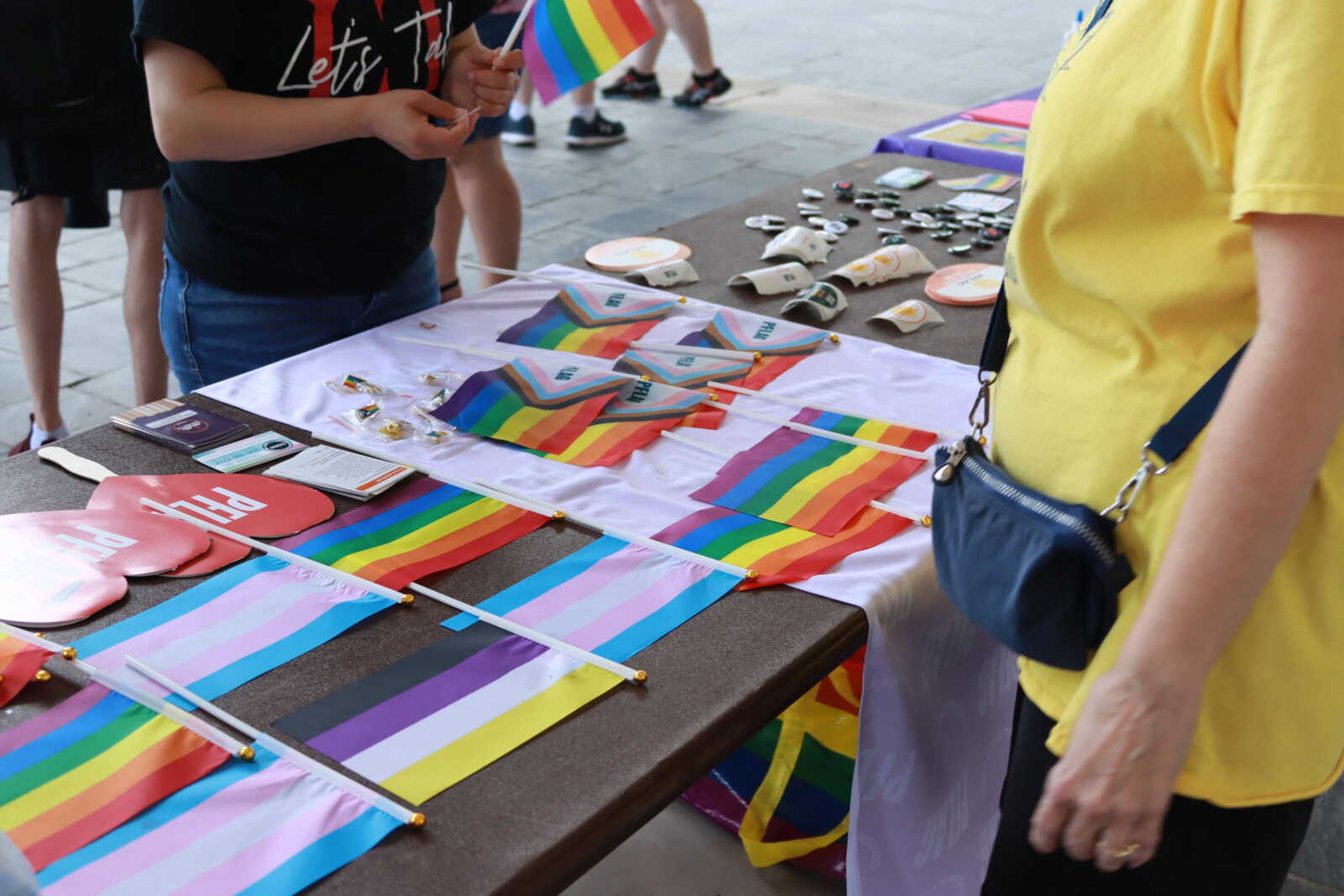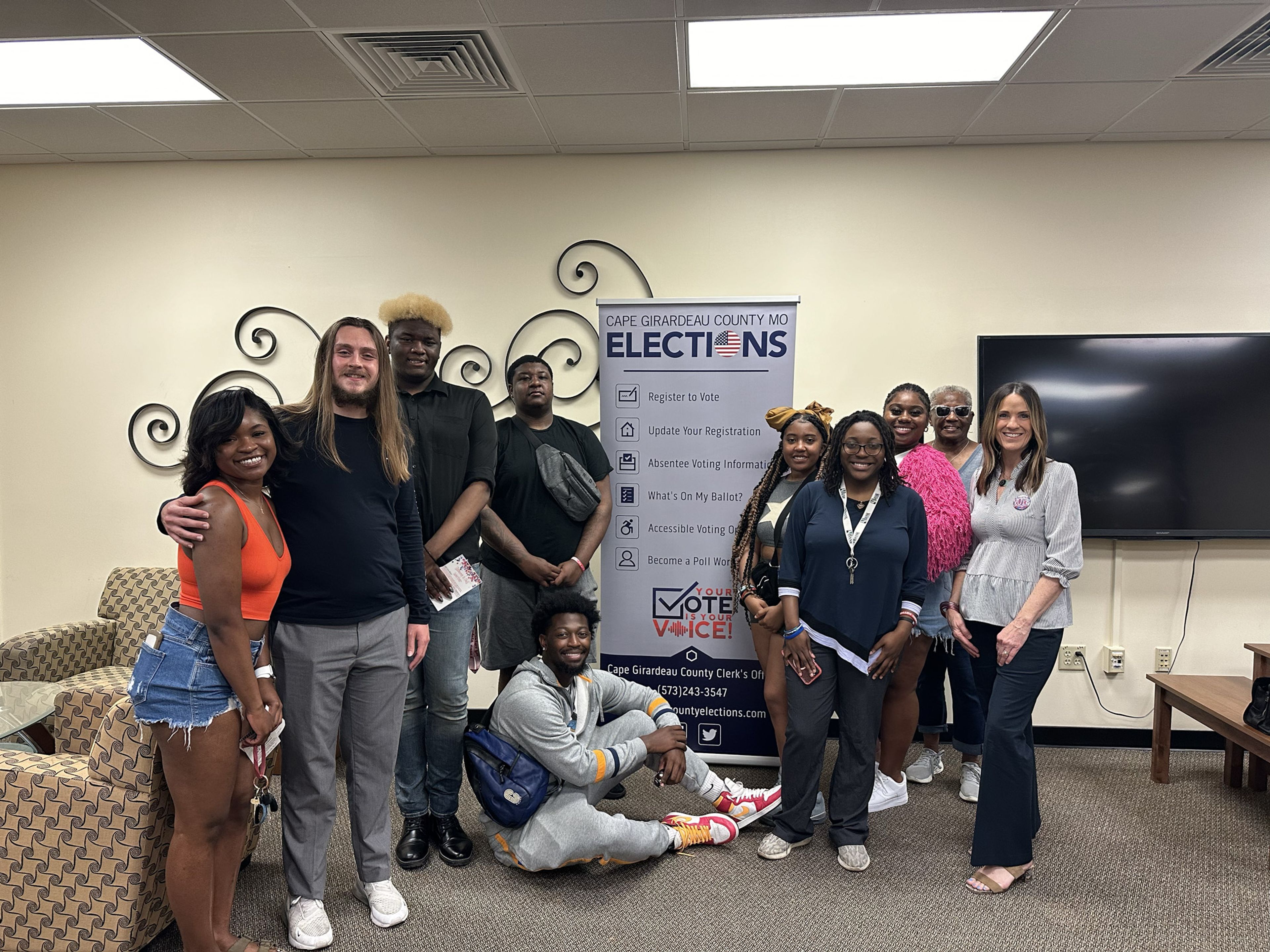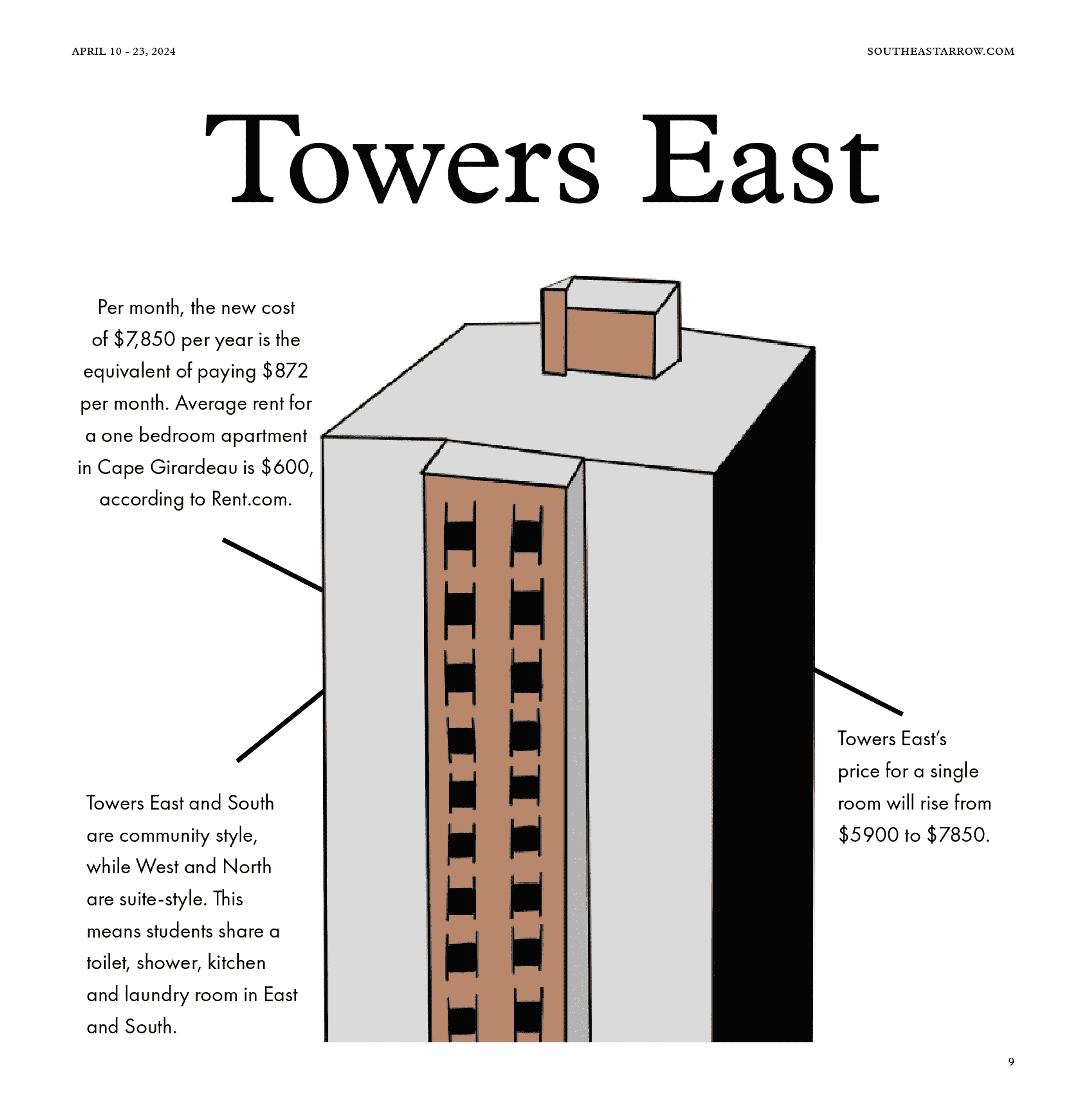Hundreds of students and community members expressed concern over SEMO’s recent decision to close the LGBTQ+ resource center, prompting university officials to express regret with their lack of communication regarding the sudden change.
The center provided the SEMO LGBTQ+ community with a physical space where individuals could receive advice from peer educators, resources and a sense of belonging. It opened in 2014.
The shutdown on Sept. 8 was initiated in an email from Nora Bouzihay, assistant to the president for equity initiatives, according to Sandra Cox, faculty adviser for SEMO Pride.
SEMO Pride president Peyton Redinger met with Nora Bouzihay and Debbie Below, vice president of Enrollment Management and Student Success, on Sept. 14 to discuss how the university can better serve the LGBTQ+ community. He said both individuals apologized for the lack of communication when closing the resource center.
“I’m not under the impression that this was like an intentional erasure of LGBT resources. I think as the president of the [Pride] organization, what I'm worried about is due to this restructuring, how is this going to impact the atmosphere of SEMO,” Redinger said.
Cox said the email stated the center had already been shut down and asked if members of the Employee Alliance, a group of staff members focused on advocacy for identity related job concerns, would like to now teach Safe Zone Training.
Safe Zone Training is a program for students, faculty and the community that provides training on how to use safe and respectful language and create welcoming environments for individuals who are non-conforming or members of sexual minority groups, according to Cox.
“I was concerned for a couple of reasons. First of all, this used to be paid labor that was undertaken by students. And I think it was really useful experiential learning for them,” Cox said. “It feels strange to me to ask members of a marginalized group to do the work of making their workplace more hospitable.”
Redinger also had concerns about the sudden closing.
“[It] ​​was alarming for a lot of people, you know that this center that served as kind of a stronghold for LGBT students, was no longer in existence,” Redinger said. “The lack of communication as to the reasoning why and everything with that, kind of raised some red flags for me and the fellow executives on the Pride board.”
Redinger took action in response to the email and set up a petition to allow students and community members to share their opinions regarding the closing of the resource center.
A total of 650 responses were collected, with almost 300 anonymous individuals providing opinions on why the center should not have been shut down.
“As an alumni of this university who used to be a member of Semo Pride's executive board and an active member in the community, removing this resource on campus is a harm to this institution. My time on campus was safer because of this resource center and the closure of it will only bring more harm to the community that is already facing a difficult time on campus. Also, this removal will impact whether or not I will consider donating as an alumni. If you do not support including resources for students who need it, especially LGBTQ+ students, I will not be supporting the university financially,” one respondee said.
“The closure of the LGBTQ+ Resource Center is a blatant and disgusting attempt to punch down at a seriously threatened community present on campus and in Southeast Missouri as a whole. To quietly take away resources from people who want and need them is a nasty way of attempting to sweep people and their needs under the rug,” another respondee said.
Redinger said SEMO Pride began to step into the role of the LGBTQ+ resource center in the past year as resources and staff began to dwindle. He said there previously were events like an annual drag show, but as time went on, these events began to disappear.
In a Sept. 18 Student Government Association meeting, SGA president Harry Meyer read a statement from the university regarding the closing of the resource center.
Meyer said the statement announced the university had received no applicants that were qualified for the graduate assistant position at the center and their data said over the previous year, the center received 10 calls, seven meetings and three emails.
University Response
The university released a statement by Debbie Below to Arrow on Sept. 15 regarding the closing of the LGBTQ+ resource center.
“The LGBTQ+ Resource Center, opened in 2014, closed this fall. Use of the Center in recent years has declined and during the 2022-2023 academic year, few students contacted or visited the Center. When the University was not able to recruit a graduate assistant to manage the Center this fall, the decision was made to close the space.
Regretfully, the closure of this physical space was not communicated to students in advance. Understandably, this action led members of our community to question plans to support LGBTQ+ students moving forward. Campus leaders met this week with students who have expressed concerns about the LGBTQ+ Resource Center closure. Follow-up meetings are scheduled with students so that we can work together to communicate information more clearly about the resources available on our campus and in our community. We commend the student leaders who gathered feedback from their peers and shared their ideas to move forward.
We maintain our commitment to building purposeful partnerships to support practices and initiatives to foster a welcoming and inclusive community for our students, faculty, and staff. While this work is led by the Office of Equity Initiatives, it is a shared responsibility of our university community. Individuals or groups interested in supporting these efforts are encouraged to contact Dr. Nora Bouzihay, assistant to the president for equity initiatives at (573) 651-2545 or email equity@semo.edu,” Below said.
Looking Ahead
Cox said that without staff whose jobs are dedicated to working for the Resource Center, advocacy and support may not be readily available.
“[Students are] particularly concerned that initiatives around safe sex and anti-discrimination issues won't be tackled without the advocacy from the Resource Center,” Cox said.
Redinger said he is worried about the lack of a physical space for students to visit. He said he discussed a proposition with Bouzihay and Below to have the resource center open during the rush hours of the UC.
Cox said she is also concerned about the lack of a physical space for the center.
“Perhaps traffic was down at the center. And I would argue that the import of the center is not best measured by the number of unique visitors, but by the amount of work done for the visitors who do come by,” Cox said.
Reporter Koki Lynn contributed to this report.





